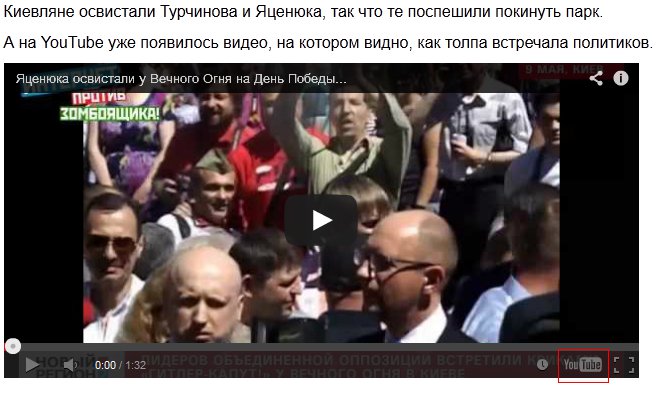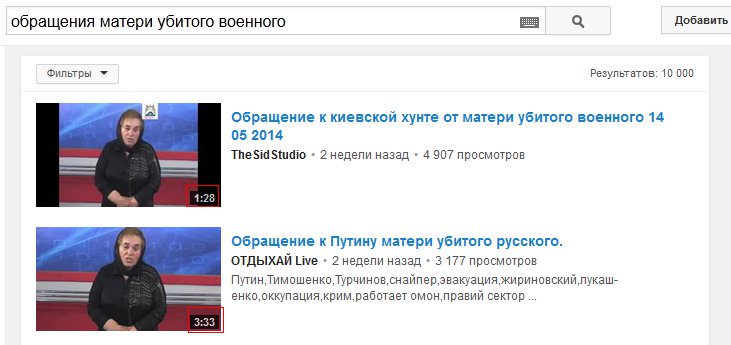Working with such a fake is much more difficult than with images, considering there is no simplified search method. If you suspect that a video’s authenticity is questionable you can try one of these methods.
First of all, if you are watching a YouTube window plug-in on some site, go to YouTube itself, in order to gather more information on the video (do this by clicking on the YouTube logo in the bottom right-hand corner).

For example, using this method, we can discover that the news from Russian [mass media outlet] Komsomolskaya Pravda (Eng: Komsomol Truth), about Yatsenyuk & Turchynov getting booed on 2014 Victory Day, is actually falsified: this video was placed on YouTube a year ago; Yatsenyuk & Turchynov were still in the opposition, and were received unfavourably by members of the Communist Party.
Of course, such basic lapses are few. If there are no obvious signs of a video-fake, we recommend that attention be drawn to the following. If there is a recent date in the very title of the video, and that particular video has been uploaded to YouTube multiple times over a short span of time, then there is high probability that the video is a fake. Select a version of the video with the highest amount of views, and read the comments by other viewers; there is a high probability that some of the viewers have seen the original, and may have even posted a link to it.
Furthermore, pay attention to the details in a video: names of objects; car license plates; street signs. Such factors can often be used to determine what is truly taking place. For example, we used this method to discover that the yacht “Video Azimut 46” (which, according to the Russian NTV channel’s news story, was supposedly a gift from a local businessman to Odessa militants for the purpose of coastal defence), is actually a rental; it was rented by the news channel personnel to create the falsified story.
One more method: verbally describe what you see in the video, and search for the description on YouTube or Google. For example, there is a rapidly spreading video fragment, titled [trans. from Rus.] “message to the Kiev junta from a mother of a fallen soldier 14 05 2014”. However, having searched for [trans. from Rus.] “message from a mother of a fallen soldier” you will easily find the complete video, from which it is clear that the mother is addressing Vladimir Putin; she asks him to cease military action in Ukraine.

Another method: make a screenshot of a more prominent part of the video, and place it in Google Image search, using the method described earlier. There is a possibility that someone used the video in some news, or used such a prominent screenshot as an image somewhere. This way it is possible to uncover the original source.
Source: stopfake.org


